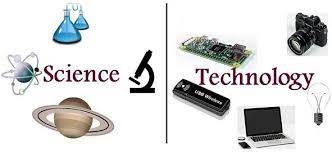The Intersection of Science and Technology
Science and technology are two intertwined disciplines that have shaped the modern world in profound ways. While science seeks to understand the natural world through observation and experimentation, technology applies scientific knowledge to solve practical problems and improve human life.
Advancements in science often pave the way for technological innovations. For example, breakthroughs in physics led to the development of semiconductors, which are the building blocks of modern electronics. The field of biotechnology, a marriage of biology and technology, has revolutionized healthcare with gene editing tools like CRISPR.
On the other hand, technology accelerates the pace of scientific discovery. High-performance computing enables researchers to process vast amounts of data quickly, leading to new insights in fields such as astronomy and climate science. Robotics and artificial intelligence have transformed industries ranging from manufacturing to transportation.
The synergy between science and technology is evident in interdisciplinary fields like nanotechnology, where scientists manipulate materials at the atomic or molecular scale to create innovative products with applications in medicine, electronics, and environmental remediation.
As we look to the future, the collaboration between science and technology holds immense promise. From renewable energy solutions to space exploration missions, this partnership will continue to drive progress and shape our collective destiny.
Seven Essential Tips for Navigating the Evolving World of Science and Technology
- Stay updated with the latest scientific and technological advancements.
- Engage in hands-on experiments to better understand scientific concepts.
- Explore different branches of science and technology to broaden your knowledge.
- Join online forums or communities to discuss ideas and innovations with like-minded individuals.
- Utilize reputable sources for research to ensure accuracy and credibility.
- Embrace failure as a learning opportunity in the pursuit of innovation.
- Consider the ethical implications of new technologies before fully embracing them.
Stay updated with the latest scientific and technological advancements.
To stay informed and ahead in the dynamic world of science and technology, it is crucial to keep abreast of the latest advancements. By staying updated on cutting-edge research and technological breakthroughs, individuals can not only expand their knowledge but also remain relevant in an ever-evolving landscape. Whether through scientific journals, tech news websites, or attending conferences, actively seeking out new information ensures that one is well-equipped to embrace the opportunities and challenges presented by the rapid pace of innovation.
Engage in hands-on experiments to better understand scientific concepts.
Engaging in hands-on experiments is a valuable tip for gaining a deeper understanding of scientific concepts. By actively participating in experiments, individuals can observe firsthand how theories manifest in real-world scenarios, fostering a more profound comprehension of complex scientific principles. Through hands-on exploration, learners not only enhance their practical skills but also develop a strong foundation of knowledge that empowers them to apply scientific concepts creatively and effectively in various contexts.
Explore different branches of science and technology to broaden your knowledge.
Exploring different branches of science and technology is a valuable tip to broaden your knowledge and understanding of the world around you. By delving into diverse fields such as physics, biology, engineering, computer science, and more, you not only expand your expertise but also gain a holistic perspective on how these disciplines intersect and contribute to innovation. Embracing this diversity can spark creativity, inspire new ideas, and ultimately empower you to make meaningful contributions to the ever-evolving landscape of science and technology.
Join online forums or communities to discuss ideas and innovations with like-minded individuals.
Engaging in online forums or communities focused on science and technology provides a valuable platform to exchange ideas and innovations with like-minded individuals. By joining these digital spaces, enthusiasts can share their expertise, seek advice, and stay updated on the latest trends in the ever-evolving world of science and technology. Collaborating with a diverse group of individuals can spark creativity, foster new perspectives, and ultimately contribute to the collective advancement of knowledge and innovation in these fields.
Utilize reputable sources for research to ensure accuracy and credibility.
When delving into the realm of science and technology, it is paramount to utilize reputable sources for research to guarantee accuracy and credibility. By relying on trusted sources, such as peer-reviewed journals, reputable institutions, and expert professionals in the field, one can ensure that the information gathered is reliable and up-to-date. This practice not only enhances the quality of research but also fosters a deeper understanding of complex scientific concepts and technological advancements.
Embrace failure as a learning opportunity in the pursuit of innovation.
Embracing failure as a learning opportunity is a crucial mindset to adopt in the realm of science and technology, especially in the pursuit of innovation. Failure is not a setback but rather a stepping stone towards progress and discovery. By acknowledging and analyzing our failures, we gain valuable insights that can guide us towards more effective solutions and breakthroughs. In the dynamic landscape of scientific exploration and technological advancement, viewing failure as a teacher rather than an obstacle empowers us to push boundaries, experiment boldly, and ultimately drive meaningful innovation forward.
Consider the ethical implications of new technologies before fully embracing them.
When exploring new advancements in science and technology, it is crucial to pause and reflect on the ethical implications that accompany these innovations before wholeheartedly embracing them. While technological progress can bring about significant benefits and improvements to society, it is equally important to consider the potential consequences on privacy, security, equity, and human rights. By proactively addressing ethical concerns surrounding new technologies, we can ensure that progress is not only groundbreaking but also responsible and sustainable for the well-being of individuals and communities worldwide.

No Responses